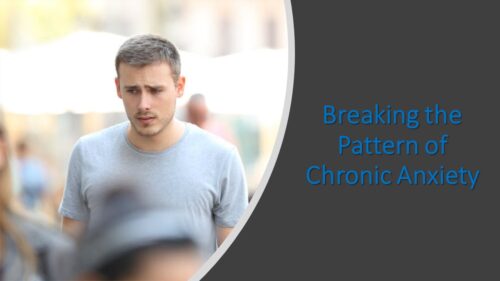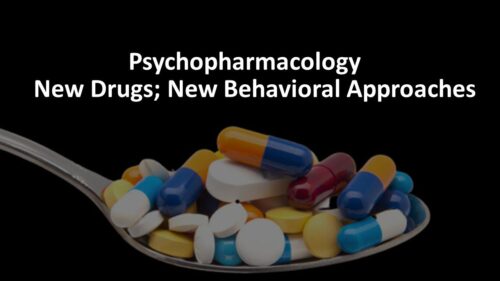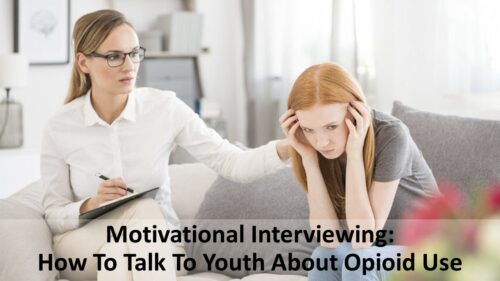-
 1 Hour, 30 Minute Video Anxiety tends to occur along a continuum, ranging from acute episodes to those more chronic and long-lasting. This training explains how anxiety impedes a person’s capacity to engage in treatment, and describes simple, yet effective strategies to help anxious people acquire a new understanding of anxiety and how it operates. This program also addresses specific behavioral interventions to better manage the problematic symptoms of Panic Disorder, Generalized Anxiety Disorder, and Obsessive-compulsive Disorder, and discusses the pros and cons of medicating certain anxiety symptoms. NOTE: This is a digital product, there’s nothing that will be shipped. Watch your email as the receipt will have a link to view the video. Sample video snippet:
1 Hour, 30 Minute Video Anxiety tends to occur along a continuum, ranging from acute episodes to those more chronic and long-lasting. This training explains how anxiety impedes a person’s capacity to engage in treatment, and describes simple, yet effective strategies to help anxious people acquire a new understanding of anxiety and how it operates. This program also addresses specific behavioral interventions to better manage the problematic symptoms of Panic Disorder, Generalized Anxiety Disorder, and Obsessive-compulsive Disorder, and discusses the pros and cons of medicating certain anxiety symptoms. NOTE: This is a digital product, there’s nothing that will be shipped. Watch your email as the receipt will have a link to view the video. Sample video snippet: -
 1 Hour, 45 Minute Video Where Psychopharmacology heads in the future will be largely dependent upon how realistically it defines its goals. This program reviews new medications for treating depression, bipolar disorder, anxiety, and ADHD. It discusses transformative behavioral strategies to accompany medications in treating these mental disorders, and peers into the future of Psychopharmacology and how I believe it should define its goals. NOTE: This is a digital product, there’s nothing that will be shipped. Watch your email as the receipt will have a link to view the video. Sample video snippet:
1 Hour, 45 Minute Video Where Psychopharmacology heads in the future will be largely dependent upon how realistically it defines its goals. This program reviews new medications for treating depression, bipolar disorder, anxiety, and ADHD. It discusses transformative behavioral strategies to accompany medications in treating these mental disorders, and peers into the future of Psychopharmacology and how I believe it should define its goals. NOTE: This is a digital product, there’s nothing that will be shipped. Watch your email as the receipt will have a link to view the video. Sample video snippet: -
 2 Hour Video While pediatric populations with substance abuse disorders are clinically diverse, some 70-80 percent of them manifest co-occurring disorders – also referred to as dual diagnosis. These co-occurring disorders complicate assessment and treatment. This training will provide clinically relevant, transformative, and practical assessment and treatment strategies for youth with substance use disorders accompanied by other psychopathologies. NOTE: This is a digital product, there’s nothing that will be shipped. Watch your email as the receipt will have a link to view the video. Sample video snippet:
2 Hour Video While pediatric populations with substance abuse disorders are clinically diverse, some 70-80 percent of them manifest co-occurring disorders – also referred to as dual diagnosis. These co-occurring disorders complicate assessment and treatment. This training will provide clinically relevant, transformative, and practical assessment and treatment strategies for youth with substance use disorders accompanied by other psychopathologies. NOTE: This is a digital product, there’s nothing that will be shipped. Watch your email as the receipt will have a link to view the video. Sample video snippet: -
 55 Minute Video Potentially dangerous opioids are often at a mere arm’s reach for youth to access, because older family members routinely store these painkillers in their medicine cabinets. In the last decade, the rate of nonmedical use of opioids by adolescents 12-17 years of age more than doubled. This program addresses the most commonly abused opioids, how youth typically get started on these substances, the primary screening tool used to identify substance problems in children and adolescents, and the importance of catching opioid use early on, so that it doesn’t progress into adulthood. NOTE: This is a digital product, there’s nothing that will be shipped. Watch your email as the receipt will have a link to view the video. Sample video snippet:
55 Minute Video Potentially dangerous opioids are often at a mere arm’s reach for youth to access, because older family members routinely store these painkillers in their medicine cabinets. In the last decade, the rate of nonmedical use of opioids by adolescents 12-17 years of age more than doubled. This program addresses the most commonly abused opioids, how youth typically get started on these substances, the primary screening tool used to identify substance problems in children and adolescents, and the importance of catching opioid use early on, so that it doesn’t progress into adulthood. NOTE: This is a digital product, there’s nothing that will be shipped. Watch your email as the receipt will have a link to view the video. Sample video snippet: -
 68 Minute Video Motivational interviewing is a powerful technique for helping people change behavior. At its most basic, it’s a conversation in which you’re trying to help someone manage ambivalence that prevents them from acting on a potentially problematic behavior. It can be particularly effective in youth with opioid-related problems, because it employs a non-confrontational interviewing style, whereby the interviewer aligns with the client’s goals. This training addresses the various phases of motivational interviewing, specific questions for child or adolescent opioid users, how to talk to parents, and the primary, evidence-based treatment options for youth with opioid issues. NOTE: This is a digital product, there’s nothing that will be shipped. Watch your email as the receipt will have a link to view the video. Sample video snippet:
68 Minute Video Motivational interviewing is a powerful technique for helping people change behavior. At its most basic, it’s a conversation in which you’re trying to help someone manage ambivalence that prevents them from acting on a potentially problematic behavior. It can be particularly effective in youth with opioid-related problems, because it employs a non-confrontational interviewing style, whereby the interviewer aligns with the client’s goals. This training addresses the various phases of motivational interviewing, specific questions for child or adolescent opioid users, how to talk to parents, and the primary, evidence-based treatment options for youth with opioid issues. NOTE: This is a digital product, there’s nothing that will be shipped. Watch your email as the receipt will have a link to view the video. Sample video snippet: